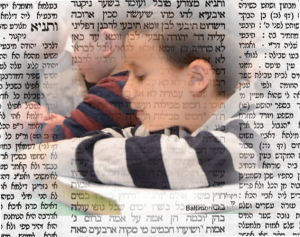 After the plagues had killed the Egyptian’s animals and most of their crops, Moses and Aharon tell Pharoah that unless he lets the Jews go into the desert to worship G-d, locusts will be sent to finish off whatever the hail didn’t destroy. Pharoah asks them, “exactly who will be going?” And Moshe responds, “with our children and our elders we will go, with our sons and daughters, our flocks and our cattle we will go” [10:8-9]. At this, Pharoah gets very angry, and refuses to let the children go.
After the plagues had killed the Egyptian’s animals and most of their crops, Moses and Aharon tell Pharoah that unless he lets the Jews go into the desert to worship G-d, locusts will be sent to finish off whatever the hail didn’t destroy. Pharoah asks them, “exactly who will be going?” And Moshe responds, “with our children and our elders we will go, with our sons and daughters, our flocks and our cattle we will go” [10:8-9]. At this, Pharoah gets very angry, and refuses to let the children go.
Why does he care? Because without the children, he can still lose the battle and win the war. He can still destroy the Jewish people.
The Talmud says that “Jerusalem was not destroyed, except because they stopped the learning of little children” [Shabbos 119]. That can be interpreted as a matter of spiritual protection: the learning of children is always pure and holy, and the Divine Presence is with Israel when they study. But just as a practical matter, there always has to be another generation of Jews — and it is Jewish learning that preserves our nation from one generation to the next.
This is why it is so crucial that every child be given a solid Jewish education. One motivation to study and learn on our own is, as the Torah says later, that we should be able to pass on what we know — “and you will make them known to your children and your children’s children” [Deut. 4:9].




Thank you very much for your very enjoyable insight.